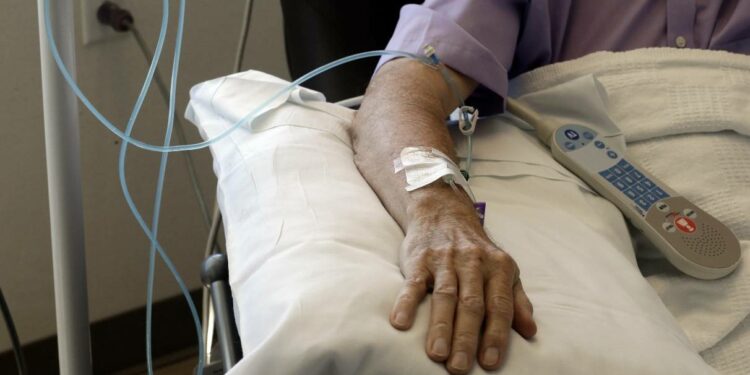In a groundbreaking development, all National Health Service (NHS) trusts in England will receive cutting-edge artificial intelligence (AI) equipment at no cost. This advanced technology is expected to significantly reduce the waiting time for cancer patients to commence their treatment. The AI system, developed in collaboration with Microsoft, aids physicians in determining the optimal location for therapeutic radiation beams, effectively targeting malignant cells while minimizing damage to healthy tissues.
Researchers at Addenbrooke’s Hospital, in partnership with Microsoft, have been working on training the AI program for over a decade, and it is now ready to be implemented across NHS trusts in England.
Traditionally, doctors spend considerable time, ranging from 25 minutes to two hours, analyzing approximately 100 scan cross-sections for each patient. They meticulously outline bones and organs, a process known as “contouring.” The researchers have reported that the AI program is 2.5 times faster than human physicians in performing this task.
When treating specific areas such as the prostate gland, medical professionals aim to avoid damaging nearby organs like the bladder or rectum, which could result in lifelong continence issues for patients.
Dr. Raj Jena, leading the work for treating patients with head, neck, and prostate cancers at Addenbrooke’s Hospital, Cambridge, emphasized the impact of such complications on patients’ lives. He said, “That can get so bad that a patient’s life becomes dominated by that.”
To develop the AI program, Dr. Jena collaborated with Microsoft and trained the system, called InnerEye, using data from previous patients. The program’s accuracy has been measured at around 90 percent, with clinicians confirming its results without requiring corrections approximately two-thirds of the time.
Recognizing the significance of this innovative technology, the NHS Artificial Intelligence Laboratory has generously donated £500,000 to Addenbrooke’s Hospital to cover the necessary safety inspections and assessments. Additionally, a manufacturer has agreed to provide the program to other NHS trusts via cloud-based technology, albeit at a cost.
The introduction of this AI system marks a significant stride towards more efficient cancer treatment. By reducing the time spent on manual analysis, physicians will have more time to focus on patient care, potentially expediting treatment plans and improving patient outcomes.
The implementation of AI technology in cancer treatment is a testament to the collaborative efforts between healthcare professionals and technology experts. As the AI program continues to be adopted across NHS trusts, it is expected to revolutionize the way cancer patients receive radiation therapy, ultimately enhancing their quality of life and treatment experiences.


















Discussion about this post